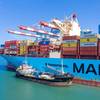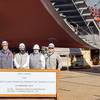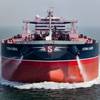Transas Develops Simulators for Korea Coast Guard
Transas Marine, in collaboration with local agent Mecys, announced the completion of a complex simulator project for the Korea Coast Guard Academy (KCGA). The real hardware integration and achieved level of realism make this simulator complex truly unique. Within the project, Transas has developed models for bridge and engine room simulators matching the layout of PV3000 and three other Korea Coast Guard vessels.
The installed simulators include the Transas full mission engine room simulator ERS 5000 which is a replica of the PV3000 KCG vessel, four very specific full mission bridge simulators based on the Transas Navi-Trainer Professional 5000 (NTPRO 5000) software imitating KCG boats, a gun fire full mission simulator integrated with 3,000t vessel’s full mission bridge. Ten real KCG surveillance radars are stimulated by Transas NTPRO 5000 software. A full mission VTS simulator with six operator workplaces and an oil spill combat lab with 10 operator workplaces can operate in the common environment with the full mission bridge simulator NTPRO 5000. This functionality provides training in oil spill response for all involved parties. A navigational lab with 30 part mission NTPRO bridges with one visual channel each, conning, radar and ECDIS stations will enable practicing various scenarios for KCGA cadets. ERS lab with 30 workplaces will be used for the training of engineers.
One of the project challenges was integration of a software control of the real MTU hardware system RCS-5 with the NTPRO 5000 and ERS 5000 software in order to provide bridge, engine and joint modes of operation to enable crew resource management exercises. Real high voltage ship born Automatic Circuit Breakers (ACB) units from Terasaki with fully functional trip device module were integrated as well. ACBs automatically pick up exercise state and operate very similar to real life.
The brand-new Korea Coast Guard Academy facilities including various administrative constructions covering a huge area near the city of Yeosu will open the doors to the first groups of cadets early next year. The newly acquired simulation complex will become a valuable national asset and contribute to proficiency of maritime education and further cost savings in training of KCG officers.
The Korea Coast Guard is responsible for maritime safety and control off the coast of South Korea. The KCG is an external branch of the Ministry of Maritime Affairs and Fisheries at peacetime. The KCG has its headquarters in Songdodong, Incheon, and has hundreds of smaller operating stations along the coastline of the Korean Peninsula. The Korean Coast Guard operates four classes of heavy vessels (over 1,000 tons), three classes of medium vessels (over 250 tons), and three classes of light vessels (speedboats over 30 tons). The KCG also uses several types of 'special purpose watercraft', such as firefighting vessels, barges, high-speed scout boats, light patrols, and amphibious hovercraft.
kcg.go.kr
transas.com







